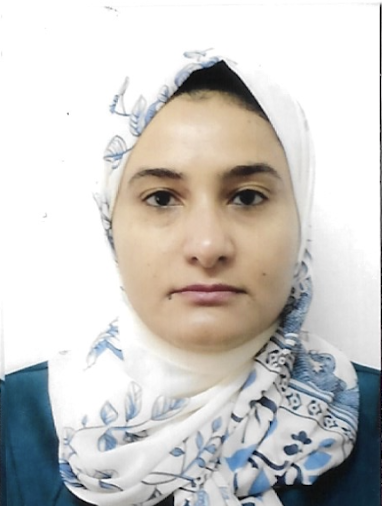Celebrating 25 years of advancing clinical research: ISRCTN's milestone study registrations
Published in Biomedical Research and Immunology

Explore the Research
Magnesium sulfate in the treatment of acute asthma
Asthma is a long-term condition which affects the airways. It can affect people of any age, however in most cases…
 Lubna M.Z. Mahmoud is an experienced emergency consultant with nearly 15 years of practice in Egypt, Oman, and Saudi Arabia. She graduated from Cairo University Medical School in 2009 and earned her master's degree in emergency medicine from Alexandria University in 2016. In 2022, Lubna achieved membership in the Royal College of Emergency Medicine. Her extensive experience and dedication to emergency medicine have made her a respected professional in her field.
Lubna M.Z. Mahmoud is an experienced emergency consultant with nearly 15 years of practice in Egypt, Oman, and Saudi Arabia. She graduated from Cairo University Medical School in 2009 and earned her master's degree in emergency medicine from Alexandria University in 2016. In 2022, Lubna achieved membership in the Royal College of Emergency Medicine. Her extensive experience and dedication to emergency medicine have made her a respected professional in her field.
Join us as we reflect on our journey by hearing about the study investigating magnesium sulfate in the treatment of acute asthma.
How were you involved in the study?
When the study began, I was the main researcher. My role and responsibilities during the initial phase included identifying cases, collecting data, and administering medications. My motivation to participate in this study stemmed from my deep interest in clinical research and clinical studies, as well as the fact that this was my master's degree research thesis.
Can you describe the study and its importance?
The study was a double-blind trial investigating the effect of inhaled magnesium sulfate in treating moderate to severe asthma in children. The primary objectives were to identify children aged 5 years and older with acute moderate to severe asthma and to administer magnesium sulfate versus normal saline in a double-blind manner alongside standard inhalation treatment. This study aimed to address key issues in clinical research by demonstrating that adding magnesium sulfate to the standard treatment for acute moderate to severe asthma improves outcomes and reduces ICU admissions. Notably, inhaled magnesium sulfate is now a standard treatment for acute moderate to severe asthma in children.
Why was this study considered significant in the field of biomedical research?
 Since the initial registration of the study, the field has progressed significantly, with the drug becoming part of the standard treatment. My study was the first to be conducted in Egypt on children, providing valuable insights into the application of medicine in different communities. The results of my study contributed to these advancements by reflecting the efficacy of inhaled magnesium sulfate in Egyptian children. The significance of this study in the field of biomedical research was underscored by the numerous studies that led to the use of inhaled magnesium sulfate.
Since the initial registration of the study, the field has progressed significantly, with the drug becoming part of the standard treatment. My study was the first to be conducted in Egypt on children, providing valuable insights into the application of medicine in different communities. The results of my study contributed to these advancements by reflecting the efficacy of inhaled magnesium sulfate in Egyptian children. The significance of this study in the field of biomedical research was underscored by the numerous studies that led to the use of inhaled magnesium sulfate.
How important was clinical study registration?
Registration was crucial for me as it helped to protect my intellectual property rights and ensured worldwide recognition of my research. Registering the study with ISRCTN also provided benefits such as adhering to universal guidelines for clinical research. Although the study was registered after its completion, the registration process enhanced the transparency and credibility of my research. In the broader context of scientific research, study registration plays a vital role in identifying pioneering research, inspiring global research efforts, and facilitating wide community research that can lead to changes in clinical practice.
This journey has been both challenging and rewarding, and I am proud to have contributed to advancements in clinical research and improved treatment outcomes for children with asthma.
You can continue celebrating our successes in forthcoming posts and following studies being registered at ISRCTN. We look forward to continuing our mission of supporting high-quality clinical research for the benefit of all.
Follow the Topic
-
ISRCTN: The UK’s Clinical Study Registry

A primary clinical trial registry recognised by WHO and ICMJE that accepts studies involving human subjects or populations with outcome measures assessing effects on human health and well-being, including studies in healthcare, social care, education, workplace safety and economic development.




Please sign in or register for FREE
If you are a registered user on Research Communities by Springer Nature, please sign in